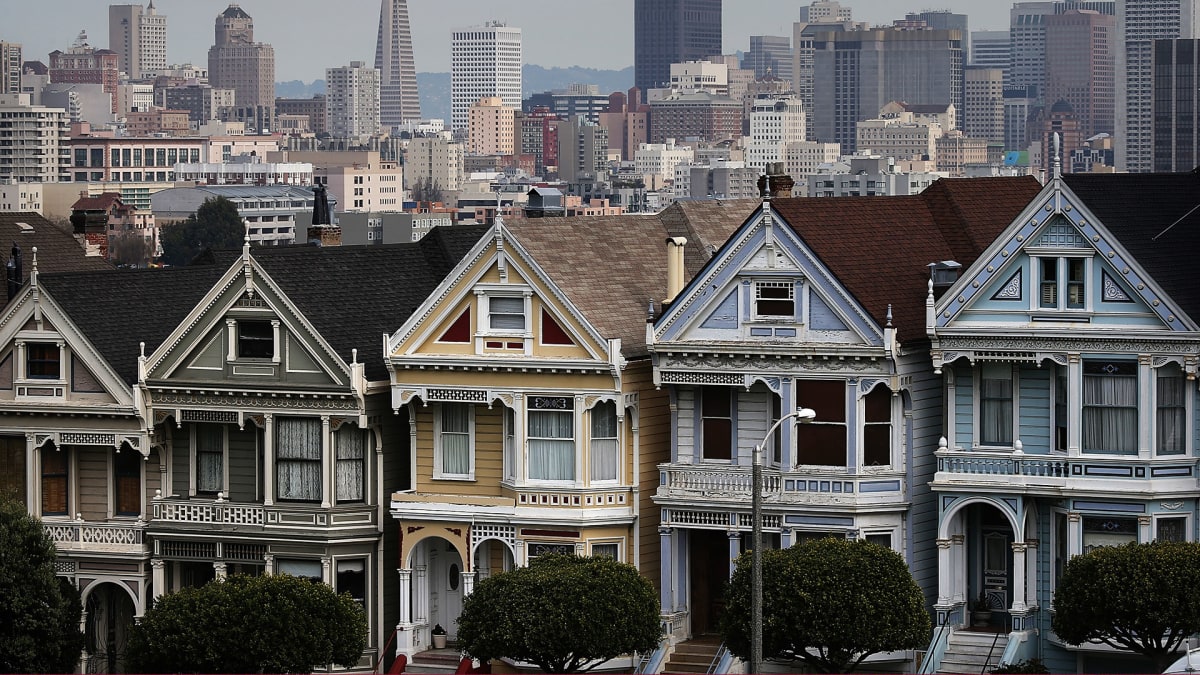
In January 1847, Yerba Buena, CA, a settlement of several hundred people, changed its name to San Francisco
A short time later, gold was discovered in the American River.
DON'T MISS: Troubled Vegas Strip Site Lands An Old-School Vegas Project
At first, people cleared out of the town as they raced to the river to pan for gold. But then San Francisco filled up as tens of thousands of "Argonauts" converged on the city in hopes of striking it rich.
San Francisco's population neared 25,000 in 1849 and 36,000 three years later.
The city was the perfect example of a boomtown, where some kind of event or discovery causes an area's population to soar seemingly overnight.
Back then, gold was the driving force behind the boomtowns.
A few years ago Covid-19 sparked the growth of pandemic boomtowns as remote workers migrated for more affordable housing.
The problems with booms, of course, is that they tend to be followed by busts and boomtowns can quickly lose their luster.
Median U.S. home prices dropped by 3.3% to $400,528, the largest year-over-year drop since 2012, according to a report from real estate platform Redfin (RDFN).
This comes on the heels of February’s 1.2% dip, which was the first annual decrease since 2012.
Tough Times in Boise
Pandemic boomtowns and pricey coastal markets, including Austin and San Jose, saw among the largest price declines, RedFin said, as home prices overheated in recent years and are now coming back down to earth after many buyers were priced out.
Prices in Boise, Idaho, which saw a spike in population during the pandemic, fell 15.4% from a year earlier, more than any other U.S. metro area Redfin analyzed.
Next came Austin, TX, down 13.7%; Sacramento, CA, which fell nearly 12%; San Jose, CA, down 10.5%; and Oakland, which slipped 9.7%.
Boise also posted the largest drop in pending home sales, with a 78.8% year-over-year decline.
“I was consistently busy in the fall, but things got really quiet in March after the collapse of Silicon Valley Bank,” Boise Redfin real estate agent Shauna Pendleton said in a news release.
“That killed the buyer momentum that had been building and brought us right back to where we were last year when mortgage rates shot up, she added. "There’s this fear that everything will crash.”
Pendleton said the irony is “that it’s actually a pretty good time to buy in Boise.”
“The dropoff in homebuyer demand means that prices are falling and many sellers—especially homebuilders—are offering concessions,” she said. “It’s not uncommon for a buyer to get a home for less than the list price.”
Nationwide, pending sales fell 26.6% on a seasonally-adjusted basis to the lowest level since the onset of the pandemic in April 2020.
Owners Reluctant to Sell
Redfin said markets that didn’t heat up as much in recent years are holding up relatively well.
Pending sales fell the least in Fort Worth, TX, Dallas, Indianapolis, Cincinnati, and Buffalo, NY.
Prices rose more than 10% year over year in March in Milwaukee, El Paso, TX, Omaha, NE, Camden, NJ and Knoxville, TN, making them the biggest gainers in the country.
Many homeowners are hesitant to sell because moving would mean taking on a higher mortgage rate when they buy their next home.
The average 30-year-fixed mortgage rate was 6.54% in March, up from 4.17% a year earlier.
Others are staying put because they already bought their dream home in recent years or fear they won’t be able to find another home they like given the shortage of listings, Redfin said.
A lack of homes on the market is contributing to the decline in sales, preventing home prices from falling further and leading to bidding wars in some markets.
More than two of every five home offers written by Redfin agents faced competition in March.
The bidding-war rate has hovered around that level for the past five months following nearly a year of month-over-month declines.

.png?w=600)





